In today’s evolving professional landscape, continuous learning is no longer optional—it’s essential. The traditional, linear career ladder has given way to a more complex and dynamic structure that demands cross-functional expertise, analytical thinking, and the ability to adapt. For experienced professionals looking to make a transformative leap, the Executive Fellow Program in Management (EFPM) offers a prestigious and strategic opportunity to deepen their impact—both in business and academia.
What Is EFPM? A Doctorate for Doers and Thinkers
The Executive Fellow Program in Management (EFPM) is a part-time, non-residential doctoral-level program crafted for working professionals, educators, researchers, and corporate leaders. It offers rigorous academic training and advanced research capabilities without disrupting one’s ongoing career.
EFPM programs are designed to bridge the gap between academic theory and practical application. As global business challenges grow more complex, organizations increasingly demand leaders who can think analytically, solve real-world problems, and apply research insights to strategic decisions. EFPM graduates are trained to lead as scholar-practitioners, equipped with advanced research skills and a practical understanding of industry dynamics.
Key Benefits of EFPM for Working Professionals
1. Continue Your Career While Studying
One of the most appealing features of EFPM is its flexibility. Many programs schedule sessions only once a month—typically Friday through Sunday—allowing professionals to continue their careers uninterrupted. This structure ensures that high-performing executives don’t need to put their careers on hold to pursue doctoral-level education.
2. Applied Research for Real-World Relevance
EFPM focuses on applied research rather than abstract theory. Participants are encouraged to undertake Work-Based Research (WBR), where they investigate issues directly related to their organization or industry. The research has immediate practical value, providing participants and their companies with actionable insights.
3. A Unique and Dynamic Learning Model
Because participants remain engaged in their jobs during the program, they are able to use real-time challenges from their work as live case studies. This feedback loop between classroom learning and professional experience enriches both realms—allowing concepts to be tested, refined, and implemented continuously.
4. Actionable Knowledge Over Academic Theory
Unlike traditional PhDs, which are often geared toward theory development, EFPMs prioritize developing practical solutions to current business problems. The goal isn’t just to publish a paper—it’s to influence business practice, drive innovation, and empower leaders with the tools to make evidence-based decisions.
5. Expand Your Network with Elite Professionals
EFPM cohorts typically include senior professionals from various industries. The collaborative environment provides opportunities for high-value networking with peers, professors, and thought leaders. These relationships can lead to consulting opportunities, board positions, or future academic collaborations.
How EFPM Can Help Launch or Transition to an Academic Career
While EFPM is built for executives, it is also a gateway into academia. Here’s how it enables that transition:
1. Rigorous Research Training
EFPM participants receive high-level training in research design, qualitative and quantitative methodologies, and data analysis. They complete a dissertation under faculty guidance—meeting the academic rigor of a traditional PhD.
2. Teaching and Academic Presentation Skills
Many programs offer modules focused on teaching and curriculum development. These help EFPM graduates take on academic roles, lecture in universities, or design management training programs within companies.
3. Opportunities for Scholarly Publishing
EFPM programs often require participants to publish review papers or submit journal articles. Publishing in Scopus- or ABDC-indexed journals not only enhances credibility but is also a critical step for those aiming for faculty or research positions.
4. Open Career Pathways in Education and Consulting
EFPM graduates are well-suited for roles in academia, research centers, think tanks, and consulting firms. Their ability to blend academic rigor with real-world business experience fills a growing gap in management education and research.
The Dual Powerhouse: Blending Corporate and Academic Strengths
EFPM graduates are uniquely positioned as “dual powerhouses”—leaders who seamlessly integrate business acumen with academic excellence.
Leveraging Industry Experience in Academia
Years of professional experience become an asset in the academic world. EFPM candidates bring real business cases, industry challenges, and firsthand insights into classrooms and research projects—making academic learning more grounded and impactful.
Applying Academic Rigor in Business
On the corporate side, EFPM equips leaders to approach problems analytically and systemically. They use academic frameworks to drive innovation, develop strategic initiatives, and lead high-performing teams with data-driven decision-making.
This blend of skills is especially valuable in corporate strategy, R&D, public policy, and executive education—areas that demand both strategic insight and intellectual depth.
The Rise of the Pracademic: A Hybrid Role for the Future
The EFPM is a catalyst for the rise of the “Pracademic”—someone who is both a practitioner and an academic. Pracademics are increasingly sought-after in universities, corporate learning programs, and global think tanks because they make academic knowledge actionable.
They help bridge the “relevance gap”—ensuring that what’s taught in classrooms addresses real-world challenges. EFPM programs are ideal for nurturing such professionals who want to influence both boardrooms and classrooms.
EFPM vs. PhD vs. Executive MBA: What’s the Difference?
| Feature | EFPM | Traditional PhD | Executive MBA (EMBA) |
|---|---|---|---|
| Primary Focus | Applied research to solve real-world business problems | Theoretical research; new knowledge creation | Strategic management and leadership development |
| Duration | 3–5 years (part-time) | 4–6 years (full-time) | 1–2 years (part-time/modular) |
| Structure | Coursework + applied research + dissertation | Coursework + theoretical research + dissertation | Case studies + projects + strategic frameworks |
| Learning Outcome | Actionable insights, leadership with research skills | Deep academic knowledge, academic publications | Enhanced business skills and strategic perspective |
| Ideal Career Path | Corporate leadership, teaching, consulting, “Pracademic” roles | Academic research, university faculty, think tanks | C-suite positions, senior management, general leadership |
Choosing the Right EFPM Program: What to Consider
Pursuing an EFPM is a long-term investment—one that demands alignment between your goals, the program’s strengths, and your lifestyle. Here are key factors to evaluate:
1. Research Alignment
Choose a program whose faculty have expertise in your intended research area (e.g., marketing, finance, strategy). This ensures focused mentorship and a relevant dissertation.
2. Program Structure and Flexibility
Assess delivery formats: Does the program offer modular learning? Are classes held on weekends or in week-long residencies? Can you manage the self-study requirements alongside work?
3. Quality of Mentorship
Great research depends on great mentors. Review faculty profiles and their availability. Are they accessible? Do they have industry experience or strong publishing credentials?
4. Accreditation and Institutional Reputation
Ensure the EFPM is:
- Approved by AICTE (in India)
- Recognized as equivalent to a PhD by the Association of Indian Universities (AIU)
- Part of respected international bodies such as AACSB and EDAMBA
These credentials signal academic quality and help with future recognition, especially for academic roles or global mobility.
5. Alumni Network and Career Support
A strong alumni community adds long-term value. Check for:
- Ongoing mentorship
- Placement or consulting support
- Networking events and executive forums
6. Specializations Offered
Ensure your desired domain—finance, marketing, strategy, operations, or HR—is available. Some institutions also allow interdisciplinary or emerging topics.
Factors such as program structure, research mentorship, and institutional recognition should be carefully reviewed—many of which are detailed on FIIB’s official admission portal for doctoral programs.
Why Choose FIIB for Your EFPM?
FIIB’s Executive Fellow Program in Management offers a comprehensive doctoral experience tailored to ambitious professionals. It blends academic rigor, flexibility, global exposure, and applied research.
Program Snapshot
- For: Senior professionals, corporate leaders, and aspiring academicians
- Duration: 4 years (part-time)
- Mode: Hybrid learning (12–15 hours/week of self-study plus periodic residencies)
- Structure: Four week-long residencies in the first year, coursework, and guided dissertation
- Outcome: Careers in leadership, consulting, academia, or combined roles
What Sets FIIB Apart
Globally Recognized Accreditation
- Approved by AICTE
- Member of AACSB (Association to Advance Collegiate Schools of Business)
- Associate Member of EDAMBA (European Doctoral Programmes Association in Management and Business Administration)
Research Ecosystem
- Engage with FIIB’s Centers of Excellence
- Contribute to the FIIB Business Review (FBR), listed in Scopus, ABDC, and ABS
- Collaborate with international partners across 30+ academic institutions
International and Industry Exposure
- Opportunities to publish in ABDC A and A* journals
- Global faculty and cross-border mentoring
- Participation in research workshops and academic exchanges
World-Class Mentorship
- One-on-one dissertation supervision
- Experienced academic and industry faculty
- Personalized guidance throughout the research journey
Executive-Focused Curriculum
- Research projects based on real business challenges
- Curriculum designed for professionals seeking impact and leadership
- Blended learning approach to balance work and study
Professional Development and Networking
- Executive workshops and bootcamps
- Seminars and panel discussions with industry experts
- Peer learning with senior professionals from diverse fields
Ideal Candidate Profile
FIIB seeks professionals with the motivation to drive change and contribute meaningfully to both business and academia. The ideal candidate may be:
- A scholar-practitioner: Passionate about solving real-world business problems using academic research.
- A future thought leader: Looking to build a career in consulting, teaching, or industry innovation.
- An analytical and curious mind: Possessing strong research aptitude and a commitment to intellectual exploration
- A global networker: Interested in building meaningful relationships with senior executives and academic mentors
EFPM Eligibility Criteria at FIIB
Educational Qualifications
Applicants must have one of the following qualifications from a recognized institution:
- Master’s degree in Engineering, Management, Commerce, Economics, or Social Sciences with a minimum of 60% marks
- A five-year integrated Master’s degree in Business Administration or a related field with at least 60% marks
- A graduate degree with a professional qualification such as CA, CS, or ICWA
- A Bachelor’s degree in Engineering or Technology with a minimum of 60% marks (final-year students may apply)
Professional Experience
A minimum of one year of relevant experience in corporate or academic settings is mandatory.
Aptitude Test Requirements
Candidates must submit a valid score from one of the following exams:
- UGC NET or CSIR NET (JRF or non-JRF)
- CAT, GMAT, XAT, CMAT, or ATMA
- FIIB’s Research Aptitude Test (RAT)
Note: Test scores should not be older than two years from the date of admission.
To check upcoming RAT test dates or for more details, contact:
Email: [email protected]
Take the Next Step in Your Professional Journey
Still Evaluating the EFPM?
Join our upcoming webinar and interact directly with FIIB’s faculty and program advisors. Learn more about the curriculum, research options, mentorship, and career pathways.
Ready to Apply?
Start your application today and begin your journey toward academic distinction and leadership excellence.
Apply Now – and take a bold step toward becoming a leader who drives both insight and impact.




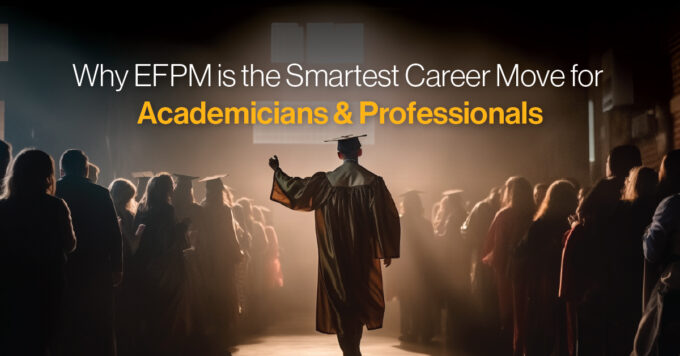
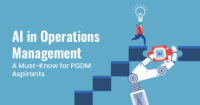

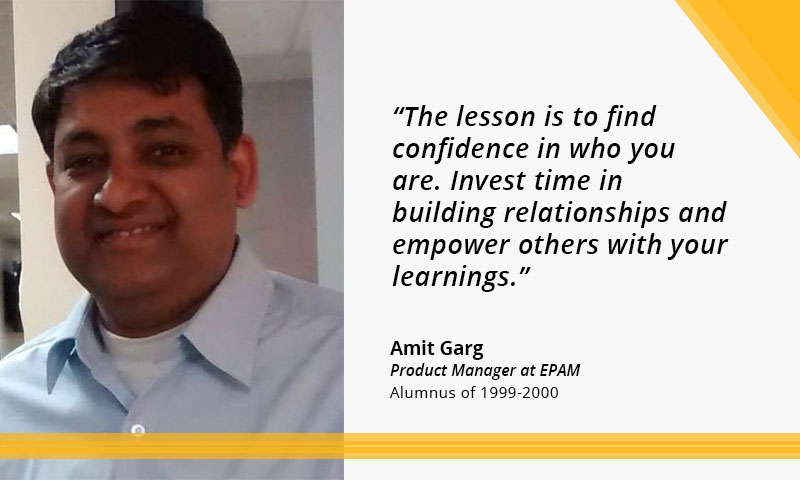
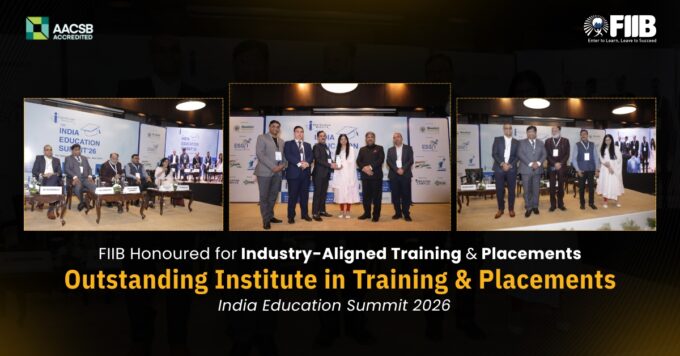
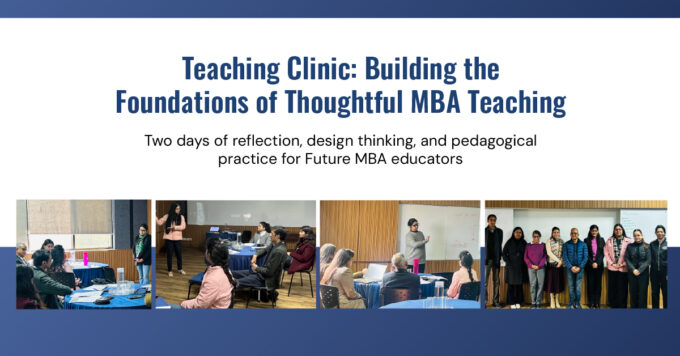
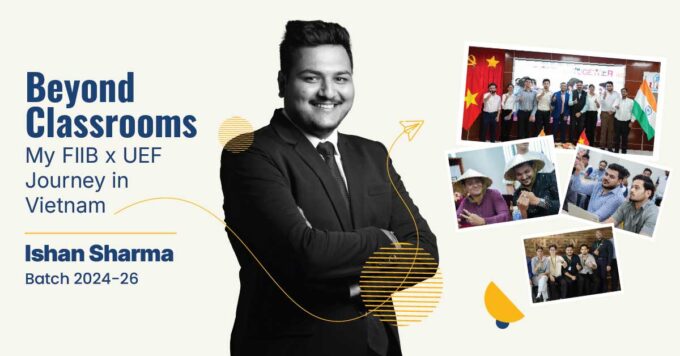





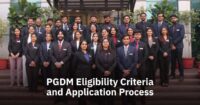

Leave a comment